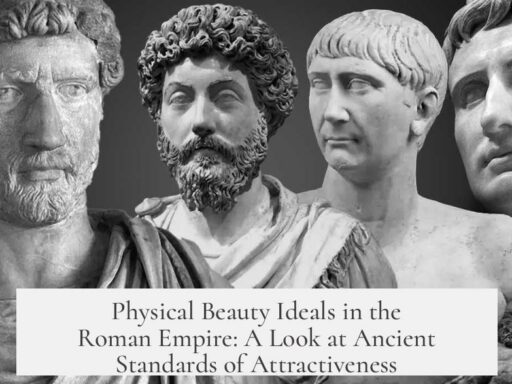Edward VIII’s political views did not play a significant role in his abdication in 1936. The main causes centered on his relationship with Wallis Simpson and the constitutional crisis that arose from it. While his attitudes toward Germany and the Nazis stirred concern among government officials, these political factors were minor compared to the overwhelming social and constitutional controversies that dominated the situation.

The abdication crisis chiefly stemmed from Edward VIII’s intention to marry Wallis Simpson, a twice-divorced American whose previous husbands were still alive. At the time, this was socially unacceptable to much of the British public and was especially offensive in a country that maintained strong religious values. This relationship damaged the King’s public image, which was already complicated by his extravagant spending during the Great Depression—a time when much of Britain faced economic hardship.
Within government circles, including among aristocrats and Edward’s own father, doubts about his suitability as monarch had existed since the late 1920s. Known for reckless and socially questionable behavior, Edward’s position had long been troubled before he ascended the throne. His private conduct and political missteps contributed to the perception that he was unfit to rule. The constitutional dilemma arose from Edward’s proposal to marry Wallis Simpson under a morganatic arrangement, which would exclude their children from the line of succession.

This solution was unacceptable because it required approval not only from the British government but also from the governments of the Dominions of the British Empire. Most of these governments outright rejected the idea, fearing it could destabilize the imperial system. A public marriage to Simpson without broader approval risked a constitutional crisis that threatened the unity of the British Empire itself.
While Edward VIII expressed controversial political views, particularly showing some sympathy toward Nazi Germany, these did not directly trigger or heavily influence his abdication. The German ambassador’s impressions of Edward’s views alarmed the Foreign Office, but officials considered this more a reflection of his reckless nature than a genuine political threat. At the time, sympathetic attitudes toward the Nazis were not uncommon in some British aristocratic circles. During the 1936 Berlin Olympics, the Nazi regime presented a polished image to foreign visitors, including many British upper-class individuals who returned with the impression that Nazi policies had been exaggerated in the press.

Edward VIII’s political stance thus aligned, to a degree, with parts of British society, making his views less unique or problematic in the immediate context of his abdication. The British establishment focused more on the social scandal and constitutional implications of his conduct than his political opinions.
After his abdication, Edward, now the Duke of Windsor, engaged in more questionable political activities, including radio broadcasts sympathetic to Germany. These acts later generated concern and even near treasonous accusations during World War II. British leaders, including Winston Churchill, supported the strategy of keeping Edward out of the public eye by sending him abroad, minimizing the impact of his controversial political actions. However, these events occurred post-abdication and thus did not influence the decision for him to step down.

| Aspect | Role in Abdication |
|---|---|
| Relationship with Wallis Simpson | Primary cause; socially and constitutionally unacceptable |
| Public Behavior and Spending | Damaged reputation in economic hardship era |
| Constitutional Crisis (Marriage Approval) | Critical; required consent of British government and Dominions |
| Political Views on Germany/Nazis | Minor factor; viewed as reckless but tolerable by some elites |
| Post-Abdication Political Actions | Controversial; did not impact abdication decision |
- Edward VIII abdicated primarily due to his intention to marry Wallis Simpson, causing social and constitutional conflict.
- His political views, including sympathy toward Nazi Germany, were of secondary concern during the abdication crisis.
- Support for Nazi Germany existed among some British aristocrats in 1936, lessening the controversy around Edward’s views at the time.
- Reckless behavior and public scandals overshadowed any political concerns.
- More serious political controversies involving Edward occurred after his abdication and did not influence it.
Did Edward VIII’s Political Views Play Any Role in His Abdication in 1936?
The short answer is no: Edward VIII’s political views had only a minor role in his abdication in 1936. The throne didn’t slip from under him because of his flirtations with Nazi Germany or his reckless political ideas. Instead, much messier social issues and constitutional crises sealed his fate.

But let’s dig deeper, shall we? Because the story of Edward VIII’s abdication isn’t just about politics or love—it’s a fascinating swirl of personal choices, societal expectations, and some very sticky legal complications. Grab your monocle and top hat (or not), and let’s unpack the real reasons behind this royal exit.
The Real Elephant in the Palace: Wallis Simpson and The Public Outcry

In 1936, the United Kingdom faced the Great Depression, a tough economic period. And while ordinary folks tightened their belts, King Edward VIII seemed to be throwing lavish sums on his mistress, Wallis Simpson, a twice-divorced American socialite. Publicly gallivanting about and planning to marry her, he offended the sensibilities of a relatively religious and tradition-minded nation.
Marrying Wallis wasn’t just a romantic faux pas. It was a constitutional nightmare. A morganatic marriage – where any children would be excluded from succession – was Edward’s idea to get around the problem. But this required approval from not just the British government but all the Dominions of the British Empire. Nearly all said “no way,” fearing the empire’s stability would unravel.
This constitutional chaos trumped any political worries over his views. In short, the country wasn’t ready for a queen who was twice divorced with living ex-husbands, especially not at a time when the empire needed unity.
Edward’s Political Views: More Reckless Than Revolutionary
Now, what about Edward’s political side? Sure, he chatted with the German ambassador, an act that made the Foreign Office blanch. His apparent sympathy towards the Nazis was frowned upon. But here’s a notable tidbit: sympathy with the Nazis wasn’t exactly fringe among British aristocrats in 1936.
Think about the Berlin Olympics in 1936, when Nazi Germany tried to polish its image for the world. Many British upper-class tourists visited and returned with reports that “things weren’t so bad.” Edward’s views, while reckless, were not exceptionally out of step with segments of British high society.
His flirtations with Nazi Germany gave officials shivers but didn’t dictate his abdication. Officials and aristocrats distrusted his reckless behavior overall—not just his politics. In that chaotic whirlwind, politics was a minor player.
After Abdication: The Duke of Windsor’s Controversial Political Actions
Interestingly, Edward’s political troubles didn’t end with his abdication. After stepping down, he became involved in some highly questionable political activity. For example, he gave radio broadcasts urging peace with Germany during the tense pre-war years. Some of these acts bordered on near-treasonous behavior.
This spooked Winston Churchill, who, despite being Edward’s big supporter, wanted to send him far from center stage, ultimately exiling him to Bermuda during World War II.
Still, none of these post-abdication political missteps impacted the decision or pressure to abdicate in 1936. By that time, the writing was on the wall due to his personal and constitutional scandals.
So What Really Ended Edward’s Reign?
- **Public outrage** over his extravagant spending during a depression and the social taboo of marrying twice-divorced Wallis Simpson.
- **Constitutional gridlock** around his proposed morganatic marriage, with governments of the empire opposing it.
- **Distrust by his inner circle**, including his own father, who believed Edward lacked the necessary judgment to be king.
All these issues combined created a crisis no amount of political views could overshadow.
Thought Provoker: Would Any Political Views Have Saved Edward?
Imagine if Edward had been the model constitutional monarch, strictly apolitical and discreet. Could he have kept the throne despite his choice of bride? Unlikely. The opposition to Wallis Simpson wasn’t just political; it was cultural and constitutional.
This raises questions about monarchy: does personal conduct matter more than political leanings? In Edward’s case, the answer seems clear.
Lessons from History & Modern Takeaways
Edward VIII’s abdication teaches a crucial lesson: leadership, especially in symbolic roles, tightly interweaves with public perception and societal norms. Personal decisions risk political fallout. Even if his political views were questionable, it was his reckless social choices that triggered constitutional breakdown.
For those in leadership today, the takeaway is clear: integrity and sensitivity to public values can outweigh policy disagreements.
Final Thoughts
Edward VIII’s political views were noteworthy but merely a small ripple in the tsunami of reasons that led to his abdication. His reckless social choices, public missteps, and constitutional deadlock played the starring roles.
Sometimes, history reminds us that **it’s not always the big ideological winds but the messy human details that change the course of nations.** So, was it Edward’s political views or his heart (and scandals) that made him step down? It’s mostly the latter. A fascinating episode packed with drama, protocol, and lessons that feel surprisingly fresh nearly a century later.




